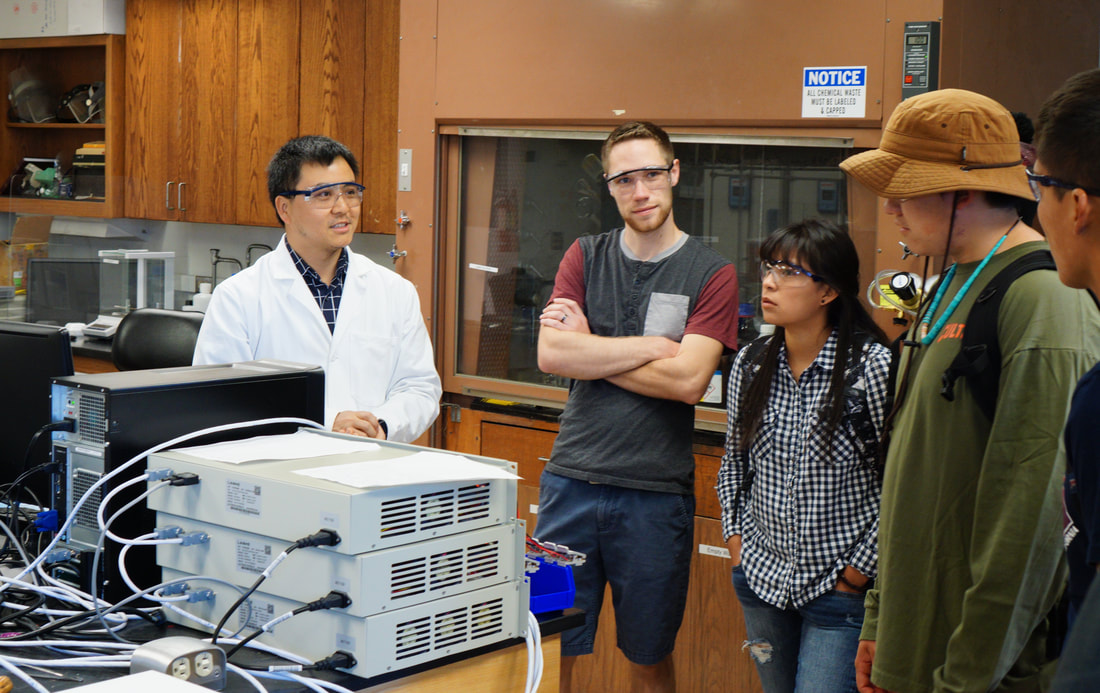A Stable, Non-Corrosive Mg Elecrolyte with High Performance for Rechargeable Mg-S and Mg Ion Batteries
Magnesium batteries are being developed as a replacement for conventional lithium ion batteries. Magnesium batteries are a promising alternative to lithium ion batteries because they are relatively safe, environmentally benign, more readily recyclable, inexpensive, and have a volumetric energy density nearly twice that of lithium. USU researchers have developed a novel Mg electrolyte capable of use in a high performance, rechargeable battery.
Problem
The global energy crisis has resulted in a push to provide renewable energy. However, progress in the renewable energy sector is limited by lack of dependable, inexpensive, and widely available energy storage. Use of lithium ion technology dominates the energy storage market, but the safety and long-term supply of lithium remain serious concerns. Furthermore, lithium ion technology is approaching its limit regarding the energy that can be stored per unit volume. To progress in creating smaller batteries (volumetrically), new battery chemistries will need to be used.
Solution
USU researchers have developed a magnesium ion electrolyte, with a highly electrochemically active, anodically stable, and non-corrosive magnesium fluorinated pinacolatoborate, Mg[B((CF3)4C2O2)2]2 (abbreviated as Mg-FPB), which is featured with strongly coordinating perfluorinated pinacolatoborate bidendate ligands to stabilize the boron center. The result is a chlorine-free magnesium battery that is environmentally friendly, efficient, and safe to use.
Benefits
This USU-developed technology replaces lithium ion batteries with a magnesium ion battery. Magnesium is more environmentally friendly, less expensive and in greater supply compared to lithium. Additionally, the USU-developed Mg electrolyte is less corrosive and more stable than Mg electrolytes containing Cl. Furthermore, the USU-developed Mg electrolyte is more efficient and less prone to intercalation than other Cl-free Mg electrolytes.
Applications
This technology is designed to improve upon and replace lithium ion batteries used in applications such as power storage, consumer electronics, and medical devices.

Contact
Questions about this technology including licensing availability can be directed to:
Christian S. Iverson, MBA
Executive Director, Technology Transfer Services
(435) 797-9620 christian.iverson@usu.edu
USU ID C19012
Development Stage
TRL 3

